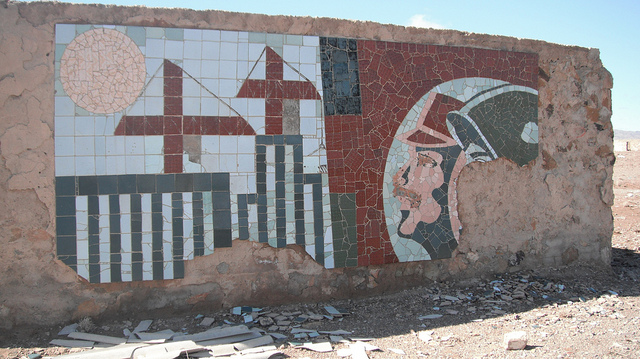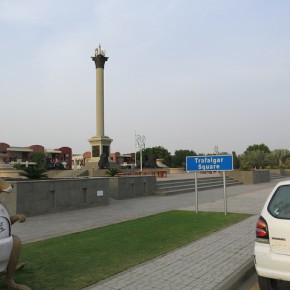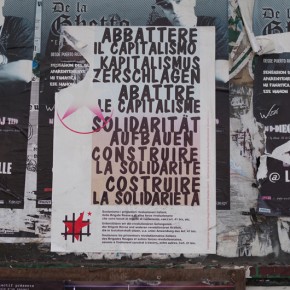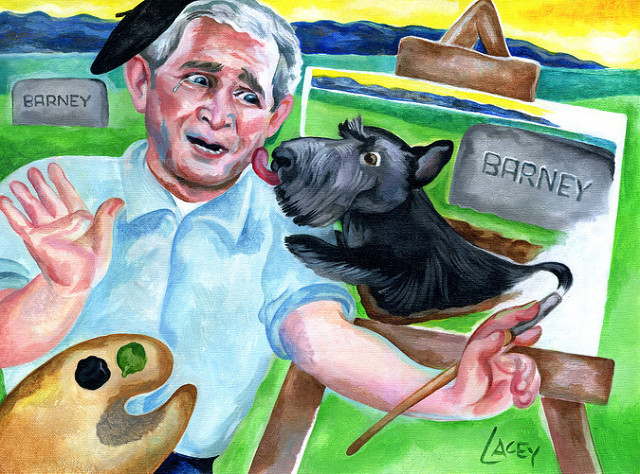One of the difficulties of critically discussing the Soviet-Afghan war is conceptually imagining Soviet imperialism. Many leftists are hesitant to condemn the nature of Soviet militarism in countries like Afghanistan. While there are understandable reasons for this, it misses the crucial point.
The fact is that neoconservative rhetoric and involvement in Afghanistan has been virtually identical to that which occurred during the Soviet occupation.
If we are to understand Afghan history properly, especially as the NATO occupation winds down, we have to make an analytical jump. Soviet and American militarism during the Cold War were two sides of the same coin. They both concealed their real intentions in Afghanistan behind an official narrative of defending a specific democratic process. This is what has led to the popular opinion that the Soviet-Afghan war was “Russia’s Vietnam,” and the parallel idea that neoconservatism is partially a “right-wing Trotskyism.”
Prior to the Soviet Union invading Afghanistan in December 1979, at the official behest of its allies in the Afghan Communist Party, there was a great deal of international discussion on how leftist forces should support progressive elements in the country. Afghan Communists took control of the country independently from the Soviet Union in the Saur Revolution of 1973, and immediately descended into infighting due to the hardline policies of the Khalqist faction.
Although the Soviet Union was able to loosen their hold on the country, their policies provoked a predominantly rural backlash, which was quickly supported by a combination of Pakistani, Saudi Arabian, and American support.
As funding to right-wing groups was privileged, and the uprising against hardliners was rebranded as a jihad, it is perfectly understandable that many leftists began to support Soviet intervention to “protect the socialist revolution.” It was especially easy to be sympathetic given that socialist policy in Kabul became far more moderated with the presence of the Red Army, under the rule of the Parcham faction. The victory of Salafi jihadists after the Communist regime collapsed, and the ascendancy of Osama Bin Laden during the war, has further legitimized this viewpoint in historical memory.

However, it is important to remember that these debates were essentially a mask for the purely cynical reasons for integrating Afghanistan into the Warsaw Pact. Central planners in Moscow drooled at the idea of having access to natural gas and mineral resources in the country, and also saw Afghanistan as a potential staging ground for expanding Soviet interests throughout Central and South Asia.
The talk of socialist revolution was essentially a paper tiger that diverted attention away from the interests of predominantly Russian “state capitalists.” There isn’t a significant memory of how many leftist forces during the era knew that this was going on.
Some relatively orthodox rebukes of the war argued that Trotsky himself rejected the 1939 invasion of Poland because it did not “spread the revolution” in the same manner as his supported push during 1920, from which we get the famous phrase, “Polish workers want revolution, but need Russian bayonets.”
Others were more nuanced: writer David Hinkel wrote a letter that called the war a “very serious blow for international socialism,” pointing out that it “transformed the character of the war there–from a civil war to a war of national occupation.” Within Afghanistan, organizations like the Revolutionary Association of the Women in Afghanistan rejected the Soviet intervention as a means of protecting Russian, rather than Afghan, interests.
Ultimately, the trajectory of the war talk very closely parallels the liberal and leftist reaction to later American-led machinations in the country. Some discussions are very new. We cannot ignore the fact that the War on Terror has framed additional security justifications for the current war in Afghanistan. However, others are quite old, such as the rhetoric about defending Afghan women and minority groups that was also heard during the Soviet occupation as well.
Much of the popular ideological support for these missions have been based in the idea that democracy must be spread through any means, including military conflict that builds its structural basis through occupation. Ultimately, though, they play off an arrogant idea that rural backwardness on the fringe areas of society justifies a violent intervention by more enlightened urban groups.

This arrogance then suffocates discussion of the economic and strategic rationale that power blocs have always had for intervening in Afghanistan. There are wider effects of this: namely, that we lose ourselves in debates about the merits of ideological crusades has also affected discussions about the Bush Administration’s policies during the occupation of Iraq, and Russian approaches to conflicts like those in Chechnya, Georgia, and the Crimean Peninsula.
It is difficult to admit this arrogance, and the deeper conflicts it masks, while simultaneously acknowledging that awareness and support for democratic alternatives is affected by social inequality. Countries with as uneven an experience with industrialization as Afghanistan have a very difficult time bridging the resulting social divides.
However, it is crucial to remember the question of how Afghanistan has operated in respect to the various intervening states. Powers that find themselves in Afghanistan have usually done so because of their own journeys of self-discovery and searches for some form of state resources and security. These have historically been both material and abstract, and usually meet their end in the country, which is why it is called the “graveyard of empires” in the first place.
This isn’t an inherent feature of Afghanistan, though, which is often implied when leaders like Alexander the Great and Genghis Khan are brought up in the same breath as George W. Bush. It is a result of how “Afghanistan” is itself an ideological construct at the edge of the world. Its status as a frontier in the modern imagination invites certain forms of interventionist thinking, with renewed zeal due to its resources and paradoxical geographic centrality in the international system.
Going forward, our awareness of why states have intervened in Afghanistan, and how we should remember it, needs to be anchored in a discussion of how central authorities should interact with their constructed “frontiers” of development and investment in the first place. Afghanistan is simply the frontier personified. It will continue to play this role as long as the idea of the frontier exists.
Photographs courtesy of Philip Stewart, Roger Smith, and Jonathon McIntosh. Published under a Creative Commons License.





